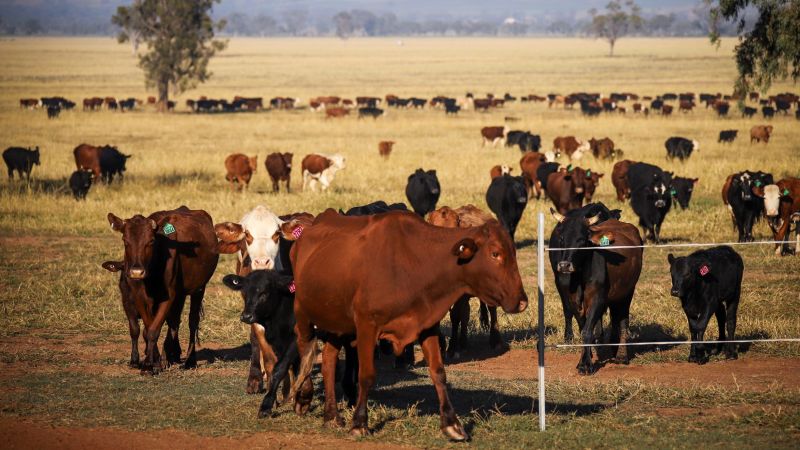China has lifted bans on imports from five major Australian beef processing facilities, a move that signals improving relations between the two nations. This decision follows the lifting of restrictions on eight abattoirs, with two still subject to import bans. The bans were initially imposed between 2020 and 2022, coinciding with China’s ban on various Australian commodities like coal, timber, and wine after Australia called for an investigation into the origin of COVID-19. Despite the bans on certain abattoirs, Australia was still able to export beef to China.
The removal of restrictions on Australian beef processing facilities is expected to boost Australian shipments to China, which have already increased to their highest level since 2020. The United States, Australia’s main competitor, has seen a reduction in its cattle herd, leading to decreased beef exports. This lower supply from the US may be a factor in China’s decision to lift the bans. Last year, China was Australia’s second-largest beef export market, receiving 240,000 tons valued at around $1.6 billion.
Since a change of government in Canberra two years ago, China has gradually lifted most of the trade barriers it had imposed on Australian goods. However, a ban on Australian lobster imports still remains in place. Australian officials, including the foreign minister, trade minister, and agriculture minister, are continuing to negotiate with China to remove these remaining trade impediments. At the peak of China’s trade restrictions, Australian exports were impacted by $20.6 billion Australian dollars ($13.6 billion).
China cited issues related to labeling, contamination, and COVID-19 cases among workers as reasons for suspending the Australian beef processors. Despite these challenges, Australia remains optimistic about the potential for increased beef exports to China. The removal of restrictions on abattoirs signals a positive step towards normalizing trade relations between the two countries. As both nations work towards resolving remaining trade issues, hopes are high for the continued growth of trade between Australia and China in the beef industry.
In conclusion, the lifting of bans on Australian beef processing facilities by China is a positive development for both countries, indicating an improvement in relations. With most trade barriers removed since the change of government in Australia two years ago, negotiations are ongoing to address the remaining challenges, including the ban on Australian lobster imports. Despite initial issues related to labeling, contamination, and COVID-19 cases among workers, Australia is hopeful that increased beef exports to China will continue. This move is expected to benefit both countries and contribute to the growth of the beef industry in Australia.













